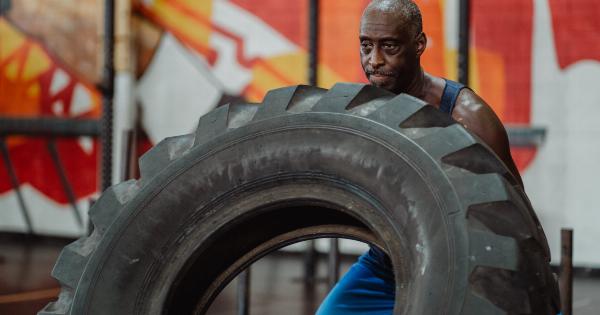Running a marathon is one of the toughest challenges any athlete can face. It requires months of preparation, dedication, and commitment. Even the most experienced runners need to put in the work to ensure they are ready to tackle the distance.
In this article, we’ve compiled 30 ways to prepare yourself for running a marathon. These tips will help you get your body and mind in shape to tackle the challenges ahead.
1. Build Up Your Endurance
Endurance is probably the most important aspect of training for a marathon. You need to ensure that your body is capable of handling the distance. Start slow and gradually build up your endurance over time.
Begin by running shorter distances and gradually increase your mileage each week. Make sure to give your body enough time to rest and recover between runs.
2. Strength Training
Although running is a great way to build endurance, it’s not enough to prepare your body for a marathon. Strength training is equally important. It helps to build up your muscles and improve your overall fitness level.
Incorporate exercises like squats, lunges, and deadlifts into your training regime to strengthen your leg muscles and improve your running mechanics.
3. Focus on Your Core
A strong core is essential for running a marathon. It helps to improve your balance, stabilize your body, and reduce your risk of injuries.
Incorporate exercises like planks, sit-ups, and Russian twists into your training regime to strengthen your core muscles.
4. Stretching
Stretching is an essential part of any training regime. It helps to improve your flexibility, reduce your risk of injuries, and promote muscle recovery. Make sure to stretch before and after each run.
Focus on your calf muscles, hamstrings, quadriceps, and glutes.
5. Proper Nutrition
Nutrition is another crucial aspect of training for a marathon. Your body needs fuel to keep up with the demands of long-distance running. Make sure to eat a healthy diet that’s rich in carbohydrates, protein, and healthy fats.
Stay hydrated by drinking plenty of water and electrolyte drinks throughout the day.
6. Running Shoes
Running shoes are one of the most important pieces of equipment for marathon runners. Invest in a good pair that’s comfortable, fits well, and provides enough support for your feet. Make sure to break them in before the race.
7. Plan Your Route
When preparing for a marathon, it’s essential to plan your route wisely. Try to choose a route that’s similar to the course you’ll be running on race day.
It will help you to get familiar with the terrain and prepare for any challenges you may face.
8. Rest Days
Rest days are just as important as training days. Your body needs time to recover and repair itself. Make sure to schedule rest days into your training regime to prevent burnout and reduce your risk of injuries.
9. Cross-Training
Cross-training is an excellent way to improve your overall fitness level and prevent injuries. Incorporate activities like cycling, swimming, or yoga into your training regime to build endurance, improve flexibility, and enhance your mental focus.
10. Speed Workouts
Speed workouts can help to improve your overall running performance. Incorporate activities like intervals, tempo runs, and fartleks into your training regime to improve your speed, power, and endurance.
11. Visualize Success
Visualization is a powerful tool that can help to improve your mental focus and reduce anxiety. Take some time each day to visualize yourself crossing the finish line of the marathon successfully.
12. Get Enough Sleep
Sleep is crucial for marathon runners. Your body needs enough rest to recover and repair itself after intense training sessions. Aim for at least 7-8 hours of sleep each night to maintain optimal performance.
13. Plan Your Pre-Race Meal
Your pre-race meal is essential for fueling your body before the marathon. Plan your meal wisely and eat something that’s easy to digest and provides enough energy for the race.
A good option is a meal that’s rich in carbohydrates and protein.
14. Hydration Strategy
Hydration is crucial for marathon runners. Make sure to stay hydrated throughout the race and have a hydration strategy in place. Consider carrying a hydration pack or drink enough water and sports drinks at each water station.
15. Mental Preparation
Mental preparation is just as important as physical preparation when it comes to running a marathon. Set realistic goals and positive affirmations for yourself, stay motivated, and stay focused on the task at hand.
16. Join a Running Group
Joining a running group can help to improve your motivation, provide support from fellow runners, and help to keep you on track with your training regime.
17. Get a Running Coach
If you’re serious about running a marathon, consider hiring a running coach. A running coach can provide personalized training plans, monitor your progress, and help to improve your overall running technique.
18. Tapering
As you approach the marathon, it’s essential to taper your training regime to ensure that your body is well-rested and ready for the race. Tapering involves reducing your mileage and intensity in the final weeks before the marathon.
19. Body Maintenance
Body maintenance is essential for marathon runners. Consider scheduling regular massages, stretching sessions, or chiropractic adjustments to help keep your body in tip-top shape.
20. Know the Course
Knowing the course before the marathon is essential. It helps you to prepare for any inclines, declines, or other obstacles that you may face during the race. Study the course map and plan your strategy accordingly.
21. Mental Breaks
Marathon training is physically and mentally demanding. Take some time to give yourself mental breaks to rest your mind and reduce anxiety. Consider meditating, reading, or listening to music during your rest days.
22. Have a Plan B
Even the most well-planned marathon can have unexpected challenges. Plan for alternatives and have a backup plan in case anything goes wrong. This can include carrying extra gear, packing snacks, or having a support crew on hand.
23. Practice Pacing
Pacing is key to running a marathon successfully. Get familiar with your pace during your training regime, and aim to maintain a consistent pace throughout the race.
Many runners make the mistake of starting too fast, which can lead to burnout and fatigue later on.
24. Don’t Underestimate the Mental Challenge
Running a marathon is not just a physical challenge; it’s also a mental challenge. You need to be mentally tough and prepared to push through fatigue, pain, and discomfort.
Use positive affirmations, visualization, and other mental strategies to keep your mind focused on the finish line.
25. Plan for Post-Race Recovery
Post-race recovery is crucial for marathon runners. Plan for some downtime after the race to allow your body to recover and repair itself. This may include activities like stretching, massage, and plenty of rest.
26. Enjoy the Process
Running a marathon is a significant achievement, but it’s also important to enjoy the process. Embrace the journey, learn from the highs and lows, and appreciate the opportunity to test your abilities.
27. Take Care of Your Feet
Your feet are essential for marathon running. Take care of them by wearing the right shoes, cutting your toenails, and applying foot cream regularly. Consider using blister prevention products to prevent blisters from forming during the race.
28. Manage Your Expectations
Manage your expectations when it comes to running a marathon. It’s a challenging race, and not everyone finishes. Don’t be too hard on yourself if things don’t go according to plan.
Focus on the experience and what you’ve learned from the process.
29. Celebrate Your Achievements
Celebrate your achievements! Completing a marathon is a significant accomplishment. Take the time to acknowledge and celebrate your success with friends and family.
30. Keep Running!
After running a marathon, it’s easy to slip out of your running routine. Keep running! Running is an excellent way to maintain your fitness level, and it can be a great stress reliever.
Conclusion
Running a marathon is a significant challenge, but it’s also an incredibly rewarding experience. By following these 30 tips, you’ll be well-prepared to take on this physical and mental challenge.




























